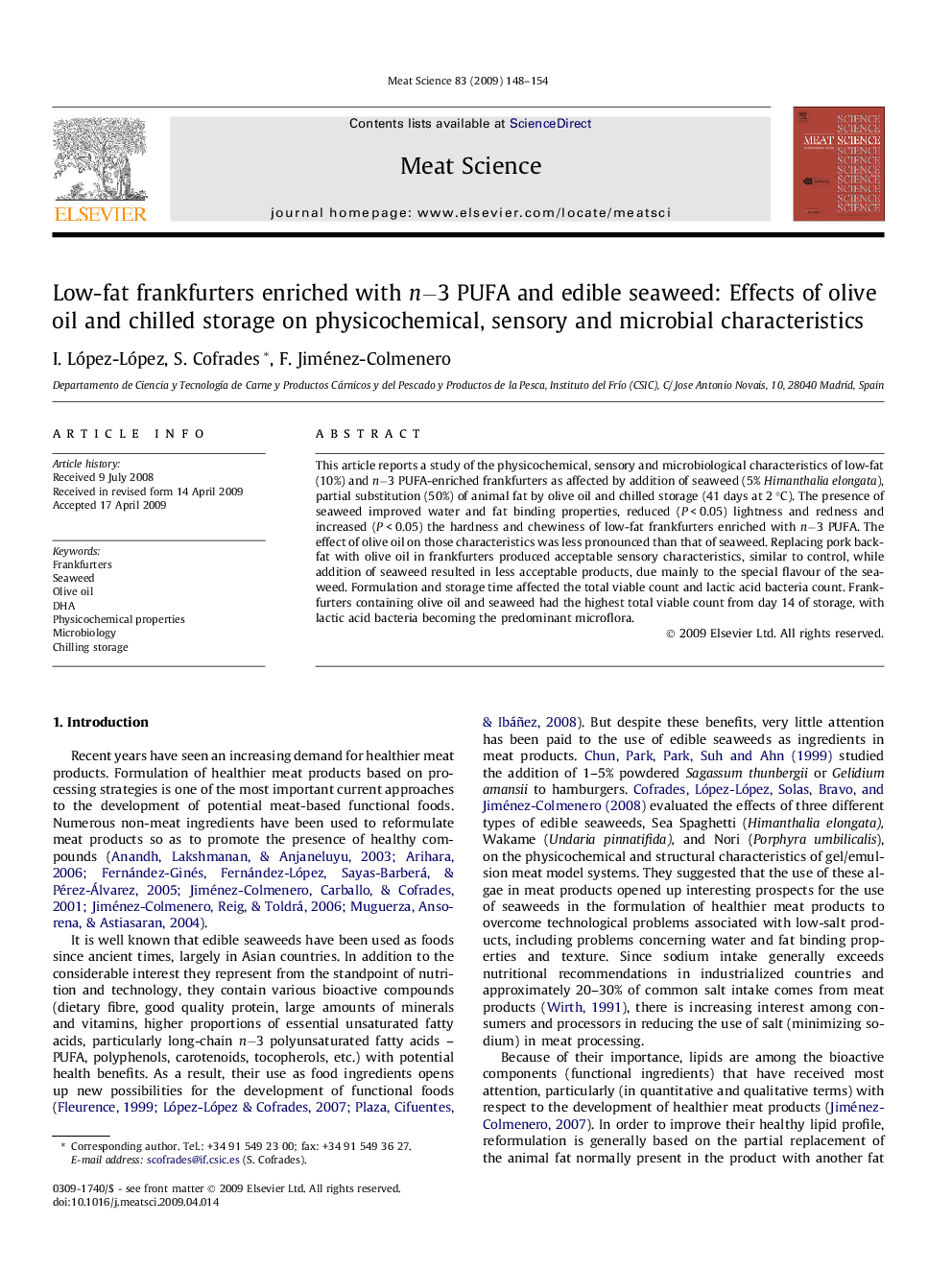| Article ID | Journal | Published Year | Pages | File Type |
|---|---|---|---|---|
| 2450920 | Meat Science | 2009 | 7 Pages |
This article reports a study of the physicochemical, sensory and microbiological characteristics of low-fat (10%) and n−3 PUFA-enriched frankfurters as affected by addition of seaweed (5% Himanthalia elongata), partial substitution (50%) of animal fat by olive oil and chilled storage (41 days at 2 °C). The presence of seaweed improved water and fat binding properties, reduced (P < 0.05) lightness and redness and increased (P < 0.05) the hardness and chewiness of low-fat frankfurters enriched with n−3 PUFA. The effect of olive oil on those characteristics was less pronounced than that of seaweed. Replacing pork backfat with olive oil in frankfurters produced acceptable sensory characteristics, similar to control, while addition of seaweed resulted in less acceptable products, due mainly to the special flavour of the seaweed. Formulation and storage time affected the total viable count and lactic acid bacteria count. Frankfurters containing olive oil and seaweed had the highest total viable count from day 14 of storage, with lactic acid bacteria becoming the predominant microflora.
